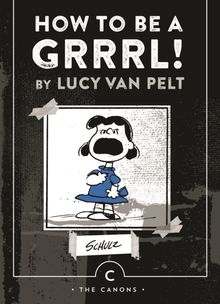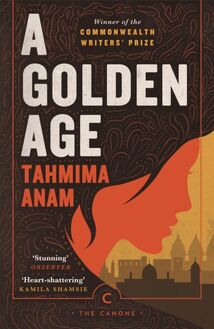Night Out with Robert Burns , livre ebook
130
pages
English
Ebooks
2009
Vous pourrez modifier la taille du texte de cet ouvrage
Obtenez un accès à la bibliothèque pour le consulter en ligne En savoir plus
Découvre YouScribe en t'inscrivant gratuitement
Découvre YouScribe en t'inscrivant gratuitement
130
pages
English
Ebooks
2009
Vous pourrez modifier la taille du texte de cet ouvrage
Obtenez un accès à la bibliothèque pour le consulter en ligne En savoir plus
Publié par
Date de parution
15 janvier 2009
Nombre de lectures
0
EAN13
9781847674500
Langue
English
Poids de l'ouvrage
2 Mo
Publié par
Date de parution
15 janvier 2009
Nombre de lectures
0
EAN13
9781847674500
Langue
English
Poids de l'ouvrage
2 Mo
A NIGHT OUT WITH ROBERT BURNS
Andrew O'Hagan was born in Scotland in 1968. He is author of The Missing and Our Fathers which was shortlisted for the Booker Prize and won the Holtby Prize for Fiction. With his second novel, Personality , he won the E.M. Forster Award from the American Academy of Arts and Letters and was named on of Granta's Best of Young British Novelists. Be Near Me , was longlisted for the Booker Prize, as was his most recent novel The Illuminations . He lives in London.
In memory of Larry Rhodes (1967–2002)
A Birl for Burns
From the start, Burns’ birl and rhythm,
That tongue the Ulster Scots brought wi’ them
And stick to still in County Antrim
Was in my ear.
From east of Bann it westered in
On the Derry air.
My neighbours toved and bummed and blowed ,
They happed themselves until it thowed ,
By slaps and stiles they thrawed and tholed
And snedded thrissles ,
And when the rigs were braked and hoed
They’d wet their whistles .
Old men and women getting crabbèd
Would hark like dogs who’d seen a rabbit,
Then straighten, stare and have a stab at
Standard habbie:
Custom never staled their habit
O’ quotin’ Rabbie.
Leg-lifting, heartsome, lightsome Burns!
He overflowed the well-wrought urns
Like buttermilk from slurping churns,
Rich and unruly,
Or dancers flying, doing turns
At some wild hooley.
For Rabbie’s free and Rabbie’s big,
His stanza may be tight and trig
But once he sets the sail and rig
Away he goes
Like Tam-O-Shanter o’er the brig
Where no one follows.
And though his first tongue’s going, gone,
And word lists now get added on
And even words like stroan and thrawn
Have to be glossed,
In Burns’s rhymes they travel on
And won’t be lost.
Seamus Heaney
Contents
Introduction by Andrew O’Hagan
THE LASSES
Green Grow the Rashes
Mary Morison
The Belles of Mauchline
Will Ye Go to the Indies, My Mary?
Of A’ the Airts
My Love She’s but a Lassie Yet
Ae Fond Kiss
Afton Water
A Red Red Rose
Oh Wert Thou in the Cauld Blast
Lady Mary Ann
A Poet’s Welcome to His Love-Begotten Daughter
Handsome Nell
THE DRINKS
Scotch Drink
The Silver Tassie
Tam o’ Shanter
The Author’s Earnest Cry and Prayer
Love and Liberty
The Deil’s Awa’ wi’ the Exciseman
Willie Brew’d a Peck o’ Maut
Auld Lang Syne
Address to the Unco Guid
THE IMMORTALS
Holy Willie’s Prayer
The Kirk of Scotland’s Garland
The Holy Fair
Address to the Deil
Death and Doctor Hornbook
Epistle to a Young Friend
Halloween
To a Louse
THE POLITICS
The Death and Dying Words of Poor Mailie
The Twa Dogs
To a Mouse
Such a Parcel of Rogues in a Nation
Robert Bruce’s March to Bannockburn
There’ll Never Be Peace till Jamie Comes Hame
Logan Braes
I Murder Hate
The Tree of Liberty
The Slave’s Lament
A Man’s a Man for A’ That
Glossary
Acknowledgments
Introduction
T hey say the rain fell heavily that day. It was 25 January 1820 and Alexander Boswell – son of the more famous James – bent down to lay the foundation stone of what would become the Burns Monument, erected in Alloway near where the poet was born. From Carrick Hill, where the stone figure of Burns stands enclosed in Gothic ornament, you can see for many miles – over fields, rivers and bridges to the hearts of those towns that can track their life-blood in Burns’s poems.
‘There surely lives,’ said Alexander Boswell, ‘no man so dull, so flinty, or phlegmatic, who could witness this event without emotion. But to those whose heart-strings have thrilled responsive to the poet’s lyre – whose bosoms have swelled like his, with love and friendship, with tenderness and sympathy, have glowed with patriotism or panted for glory – this hour must be an hour of exultation.’
But Alexander’s tears, like those of a number of his contemporaries, must have been slightly salted with guilt, for few poets – even of the Romantic breed – had been allowed to die quite as penniless as Burns. The well-to-do of Edinburgh had lionised him for a season then dropped him like a sack of Ayrshire potatoes. One of his friends said that for every smart remark that came out of Burns’s mouth, he made a hundred enemies.
It took nearly two dozen years to raise the money for the Alloway monument, and even then the subscription was short. Thomas Carlyle put the matter bluntly:
It was a curious phenomenon, in the withered, unbelieving, second-hand 18th century, that of a Hero, starting up, among the artificial paste-board figures and productions, in the guise of a Robert Burns. Perhaps no man had such a false reception from his fellow men. You would think it strange if I called Burns the most gifted British soul we had in all that century of his: and yet I believe the day is coming when there will be little danger in saying so.
I once went in search of the Burns who mattered to people. It was a good few winters ago, and rain had frozen to snow, which lay thick on the ground of Alloway the day I arrived. The driver could hardly see anything; every few miles he stepped out to scrape the frost from the windscreen. The light was going – ‘dim-dark’ning thro’ the flaky show’r/Or whirling drift’ – and for a moment, but for the car, it seemed we could be in any century.
The whole of Alloway is now more or less given over to something called the Burns National Heritage Park. This includes Burns Cottage (the birthplace), plus a museum full of manuscripts and memorabilia (and toffee). It also includes the Old Alloway Kirk (where Burns’s father is buried), the Burns Monument and a new building which houses the Tam o’ Shanter Experience.
However grim the Burns family cottage was in 1759, it could hardly be any worse than it is now. You go in wearing earphones, and it’s freezing and dark as you sit down to watch one of those heritage flicks full of Scottish sunsets and ruddy-cheeked people. The room where the Burns family sat together is cold and Calvinist: no crack of light or laughter there. Wooden dolls stand around a table, being taught all the good ways by a bigger doll in the shape of Burns’s father.
The museum has some good first editions. The manuscripts of correspondence offer a lively view of Burns’s life on earth. You see relics of his early education: a Bible and a book of English essayists; bits of French and Latin, evidence of good relations with a young local teacher, John Murdoch, who considered Robert and his brother Gilbert to ‘have no ear for music’. Then there are artefacts relating to the life of a young man, a romancer and a hard worker: his razor and shaving mirror, his drinking vessels, his pendants, his pens and proof of their various productions.
As you look over these bits and bobs, a motion picture of Burns’s life begins to roll. Born in that barn outside the museum, it was no time at all before the young Robert went wandering by the River Afton with his finger on his chin. The family moved to Mount Oliphant farm – not far away – when he was seven. An indication of the way things were to be came when Robert spied a blacksmith’s daughter, Nellie Kilpatrick, and wrote a poem about how she’d captured his heart. His walks through Ayrshire brought further poems, chiefly about the things that caught his eye, and chiefly in the Scottish dialect.
He joined a dancing class at Tarbolton (to meet girls); he formed the Bachelors’ Club (to meet his pals); he became a Freemason; and he tried to learn the trade of flax-dressing at Irvine, ten miles along the coast. Tales of affairs follow: girls getting pregnant; advances sought and sometimes rebuffed; troubles with the Kirk because of all his carry-on. We hear of his plans for emigration to Jamaica; his attempts to marry Jean Armour and his repudiation by her father; his loss of the adored Highland Mary, who may have died in childbirth; his shelving of the Jamaica plans; and his triumphant debut with the Kilmarnock Poems . Burns’s life actually unfolds more like an opera than a film – no wonder Gene Kelly’s ambition was to make a musical of it.
Burns made it in Edinburgh, where he’d gone on a borrowed donkey, but ventured home to poverty a few months later. He took a lease on a hopeless farm called Ellisland; he became an exciseman; his wife had more children, and so did women who were not his wife (Mrs Burns said that ‘Our Robin shoulda hud twa wives.’) He started collecting old Scots songs, and rewriting many of them, for publication; he fell in and out with friends; he fell foul of gossip-mongers and idiots, who ruined his chances of advancement in the Excise; he dissipated a bit, though probably not as much as people said at the time. He liked a drink. He had a bad heart – a mental case of a doctor thought to cure it by having him wade in the Solway Firth. But he died, aged 37, in a house up a scabby lane in Dumfries. He was feverish and ravaged, his heart was in bits, and there was hardly a penny in the house.
This is a little of what we know about Robert Burns. The episodes are like scenes in an overblown drama, and each is captured in the portraits and pocketbooks that stood around me in the Burns Museum. Out in the foyer were many of the productions of Burns’s incredible afterlife: shortbread and haggis, tea-towels and trays, happy notepads and dodgy tapes. Everything for everybody, or nothing for nobody, depending on where you sit. The ‘Burns cult’ that so annoyed Hugh MacDiarmid finds its primary – though quite harmless – expression in this gallery of trinkets and toffees. They are testament to how successful a brand name and face Burns has become. The shop sells the books as well, and collections of letters and lives. The other stuff is just tourism: people want to show they’ve been somewhere, even if they haven’t been anywhere yet.
I had the Tam o’ Shanter Experience on my own, bar one other person. It was a fairly bi














